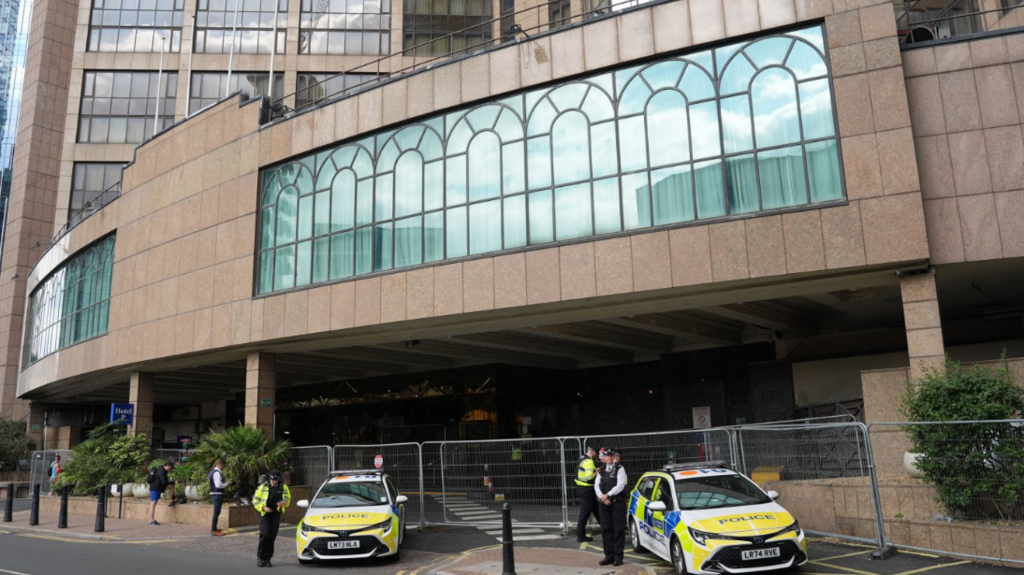The Home Office is poised to reduce by half the duration that individuals granted asylum in the UK can remain in government-provided accommodation.
In December, ministers doubled the transition period for refugees moving from supported housing to independent living, extending it from 28 to 56 days.
This extension followed warnings from local councils and charities about increasing refugee homelessness. However, the government maintains that the adjustment was always intended as a temporary measure.
While some shelters reported the extended period’s effectiveness, ministers have decided to revert to the original, shorter timeframe starting in September, a decision that charities have met with strong disapproval.
The government asserts that it will continue to collaborate with other organizations to provide “necessary assistance” to newly-recognized refugees.
Families, pregnant women, individuals over 65, and disabled persons will continue to receive the 56-day period until December, when the policy will undergo another review.
Officials indicated in December that the period’s extension was intended to support local authorities, but clarified that it was “an interim measure” scheduled to last until June 2025, at which point it would be re-evaluated.
The government has pledged to eliminate the use of asylum hotels by 2029. However, recent figures reveal that the number of asylum seekers housed in hotels has slightly increased since Labour assumed power.
Home Office data also suggests that ministers may have identified a means to decouple the number of small boat arrivals from the number of individuals accommodated in asylum housing.
Officials have accelerated the processing of asylum claims compared to the period before the general election. This may lead to a long-term reduction in the number of individuals requiring housing support from the Home Office.
Leaders of charities in the homelessness and asylum sectors have expressed their “appallment” at the Home Office’s decision to reinstate the 28-day refugee support period.
According to research by the No Accommodation Network (Naccom), an umbrella group, over 70% of organizations in the homelessness and asylum sectors reported that the 56-day period had decreased the risk of homelessness.
In a joint statement, the director of Naccom and the chief executive of Homeless Link stated that the reduced timeframe “will place even greater strain on already overburdened local authorities and voluntary sector services.”
They asserted that their collected evidence demonstrated the effectiveness of the 56-day period and that the change would “ultimately lead to more instances of rough sleeping and homelessness among newly recognized refugees.”
The head of a homeless shelter, who requested anonymity, stated that “attempting to further expedite this process while simultaneously halving the move-on time is only going to exacerbate” homelessness among refugees.
They added: “While the government and others may wish to end the use of hotels, surely we can all agree that the solution shouldn’t simply be pushing people onto the streets?”
“We have witnessed a significant increase in the number of refugees becoming homeless [over the last two years] as the Home Office rapidly processes the asylum backlog without providing adequate support for those granted leave to remain.”
The government’s Homelessness Reduction Act, enacted in 2018, acknowledged that at least 56 days are typically required to secure accommodation.
A refugee granted leave to remain has a move-on period to find housing before being evicted from Home Office accommodation.
If a newly-recognized refugee fails to find housing within that timeframe, they often declare themselves homeless to the local authority.
In recent years, a shortage of available housing options has compelled many councils and charities to resort to more expensive alternatives, such as hotels and bed and breakfasts, to accommodate those in need.
Some charities have contended that a 56-day period is more likely to provide refugees with sufficient time to find employment and housing, partly because Universal Credit payments are more likely to have commenced by that point.
A government spokesperson stated that they had “inherited a broken asylum and immigration system” and were “taking practical steps to turn that chaos around.”
They affirmed their commitment to “work with local councils, NGOs, and other stakeholders to ensure that all necessary assistance is provided to individuals granted refugee status.”
The Local Government Association has been contacted for comment.
Nigel Farage has now ruled out the suggestion, after the party’s former chair said it could happen.
Durham county councillor Paul Bean is also a Home Office civil servant who processes asylum claims.
A Reform government could see the UK leaving the European Convention on Human Rights to deliver its plan.
Sam Burgess, 32, also pleads not guilty to using threatening behaviour against four men.
More than 700 people have been arrested for allegedly showing support for the proscribed group.

